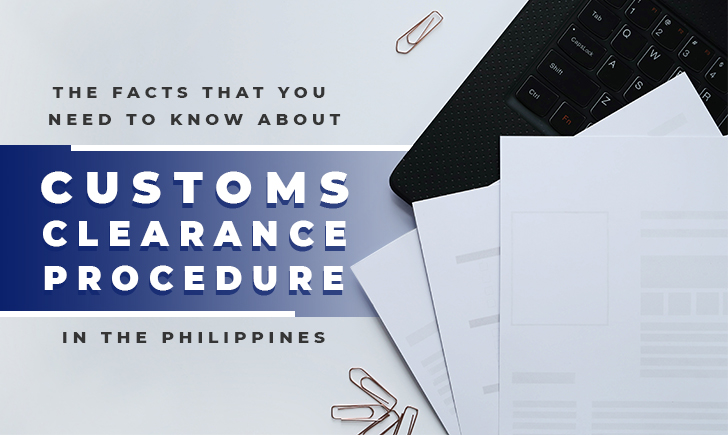Customs clearance procedure in the Philippines must be strictly adhered with for the importation or exportation of goods. It involves the confirmation needed for a shipment to be processed. Usually, the procedure is a lot simpler with the help of a customs broker.
If you are a business owner who is interested to learn more about customs clearance procedure in the Philippines, here’s a guide that will answer the most common questions.
Essential Facts About Customs Clearance Procedure in the Philippines
What is Customs Clearance?
Customs clearance is the procedure that one must undergo to secure permission for the transport of goods to another country. It involves the disclosure of information about the involved shipment.
CUSTOMS CLEARANCE PHILIPPINES: THE PROCESS
The customs clearance must be processed within 30 days from the time the last package is unloaded. During this period, you need to prepare the required documents to avoid unnecessary delays during releasing.
Registration
Customs Clearance for Philippine Importers: an importer will need to register and must first secure an Import Clearance Certificate from the BIR (Bureau of Internal Revenue). Registration must then be made with the BOC (Bureau of Customs). From there, an account with the Client Profile Registration System must be created.
Customs Clearance for Philippine Exporters: New exporters must also register with the Client Profile Registration System through the Philippine Exporters Confederation.
NOTE: Annual renewal is required for CPRS accreditation. The Import Clearance Certificate has a 3-year validity.
Documentary Requirements for Importers and Exporters
For importers to the Philippines:
- Packing list;
- Invoice;
- Bill of lading;
- Import Permit;
- Customs Import Declaration; and
- Certificate of Origin.
NOTE: Customs clearance in the Philippines requires importers of animals, plants, chemicals, medicines and food products to secure a Certificate of Product Registration from the Philippines Food and Drug Administration.
For exporters from the Philippines:
- Packing List;
- Invoice;
- Bill of Lading;
- Export License;
- Customs Export Declaration;
- Certificate of Origin.
NOTE: Customs clearance in the Philippines has additional permissions that may be required for certain exports including but not limited to:
- Flora and fauna classified as endangered species;
- Animals and animal products;
- Fish and fish products;
- Plants;
- Rice;
- Radioactive materials;
- Sugar and molasses
How a Customs Broker Can Help You
A customs broker has the knowledge needed to help make customs clearance procedure in the Philippines a simple and straightforward process. A customs brokerage agent will help in customs entry, duties payment, and processing to spare you from unnecessary delays, penalties, product confiscation, and other shipping problems.
ALSO READ: POSTAL VS COURIER SERVICES: THE KEY DIFFERENCES
Customs clearance in the Philippines would be a less tedious process with the help of a reliable shipping company in the Philippines. Go for an experienced and trusted company that can help gather and complete the forms and documents you need so you can avoid delays and focus on other important aspects of your trade.
Worklink has been providing efficient, effective and reliable courier services, forwarding, trucking and logistics, as well as customs brokerage services to various industries in the Philippines. We can help you throughout the process of Customs Clearance in the Philippines. Contact us now so we can help you.


